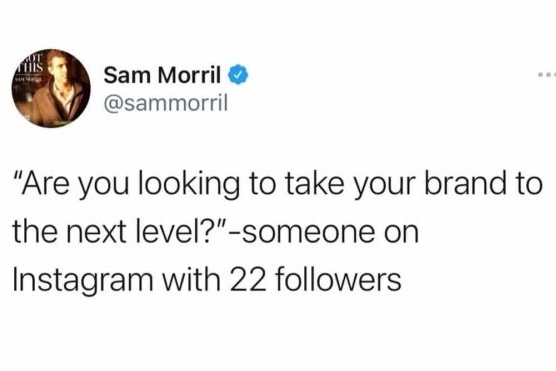1. Good Monday Morning
It’s July 19th. Jeff Bezos will be the famous passenger aboard the Blue Origin rocket lifting off at 9 a.m. ET on Wednesday. You can watch it here or see the petition one guy started last month to bar his return to Earth.
Today’s Spotlight is 1,575 words — about a 5 minute read.
2. News To Know Now
Quoted:“We have written confirmation from [the Ministry of Defence] that this document remains classified.. Every time you post this, you place us, especially any UK citizens, in hot water as the warning so helpfully states that unauthorized retention of a protected document is an offense.”
— A Gaijin Entertainment moderator’s response to a video game player who kept sending confidential documents suggesting that the game company had erred in its game’s portrayal of the UK’s Challenger 2 tank. (IGN)
a) Quicken and TurboTax maker Intuit has taken the road less traveled. The company told QuickBooks and Intuit Online payroll customers that it will begin sharing payroll data with the Equifax credit bureau if those customers didn’t opt out by July 31.
Inuit also announced last Thursday that it would leave an industry consortium that works with the IRS to offer free tax filing to low income taxpayers. Before the pandemic, we wrote about IRS criticism of Intuit and H&R Block hiding free tax filing options on their websites.
b) Fakespot is an app that launched this summer that helps shoppers detect fake reviews on Amazon. The ecommerce giant said that they were concerned about the upstart using an overlay over their own app. Apple agreed and pulled the plug. The app was still live on Google’s Android store this weekend.
c) News broke this weekend about widespread use of a military grade spying app called Pegasus found on the phones of more than 1,000 people on four continents. Those phones belonged to activists, politicians, journalists, and several heads of state. The data first appeared at a French nonprofit and at Amnesty International before a coalition of 16 media partners helped investigate the hacks.
Here are links to coverage at the Washington Post and The Guardian.
3. Search Engine News — Ranking Help From WordPress
We’ve previously told you about Google and WordPress partnering more. Now it appears that the next major WordPress revision due in December may include a way to streamline how images are loaded on a website. An analysis in Search Engine Journal suggests that using that version of WordPress can improve a major Google ranking indicator by 7%-33%. Website managers will benefit as will users accessing their sites.
Google also announced that it has partnered with GoDaddy to offer streamlined services for e-commerce websites as it did earlier this year for Shopify customers.
TL; DR: WordPress 5.9 is scheduled to have lazy-loading images native in December. Google also is promoting free Google Shopping listings to GoDaddy e-commerce customers.
4. Spotlight Explainer — New Search Engines
You’ll likely hear soon about a couple of new search engines. I’ve been test driving Brave and Neeva plus looking at Search Atlas and can break them down for you.
Why more search engines? It’s a natural market force, not only something unique to Google’s virtual monopoly. There were always multiple directories and later search engines. People tend to pick a search engine and stick with it forever. Even professional researchers make that mistake, but Microsoft and Yahoo! still combine for about one-third of all US searches.
What’s different? In large part, the difference is how the competitive search engines portray themselves. DuckDuckGo has promoted itself as a privacy-oriented search service for a dozen years, but now newcomers Brave and Neeva are adding their voices to that song. It’s a big deal if you focus on just their numbers. DDG had more than 100 million daily searches in January and February.
How do you start a search engine? The new companies have very capable executives. Neeva was launched by Sridhar Ramaswamy, Google’s former head of Ad Sales. Brave is led by former Mozilla CEO Brendan Eich. No one is starting those search engines from their dorm room and scaling up in a garage.
How are the results? Different. Not great yet, but different, and that’s important. When we analyzed the results across Google, Bing, Neeva, and Brave, we always saw different results, but we also saw entirely different sites appearing on page one for the new companies. If I were researching something without a lot of public information or facts behind it, I would absolutely use all four plus DuckDuckGo and some others.
Can I Use Them? You bet. Find them here:
Brave: https://search.brave.com/
Neeva: https://neeva.com/
What’s This About Search Atlas? This is a new service in beta that is not yet open to the public. It’s also one of the exciting search engines on the horizon. It’s a new take on meta search engines that use results from more than one place. Search Atlas lets you compare results on one screen from multiple countries. This will be an exciting tool to use as countries begin imposing laws on what can be found via search. Example below:
5. Debunked — The Big 12 Is True
We wrote in April about a then-new study that showed that 65% of the anti-vaccine content on Facebook and Twitter can be traced back to twelve people. Yes, the number after eleven.
Spotlight readers already knew all about this, but the White House and several big media organizations are having quite the scrape this week over that data.
“On Facebook alone, the dozen are responsible for 73% of all anti-vaccine content, though the vaccines have been deemed safe and effective by the US government and its regulatory agencies. And 95% of the Covid misinformation reported on these platforms were not removed,” wrote The Guardian this weekend.
6. Following Up — REvil Disappears & Google Fined in Australia
Last week’s Spotlight Explainer was all about REvil, a Russian hacker gang that has successfully targeted more than 1,000 organizations including meat processor JBS and Acer Computers. The glare of a Spotlight Explainer was apparently too much for the gang, which disappeared from the dark web early Tuesday according to Threat Post. Some fella named Biden also complained to the president of Russia, but whoever was responsible, you’re all welcome. I’m sure Mr. Biden would say that to you too. But honestly, no one knows where they are or why their sites went dark.
You might remember that we’ve also written about Google and Facebook facing regulatory action in other countries for allowing or posting news articles on their platforms without compensating the media companies. The French government said last week that Google was not negotiating in good faith and fined the search company nearly $600 million. Don’t be surprised if you read this week that Google News has vanished from French browsers as fast as a Russian ransomware gang.
7. Protip — New Emoji
The consortium that coordinates emoji standards is due to vote on the next group, which will be released in two months. There’s a saluting emoji, another that is holding back tears and a melting face that has apparently been outside lately. Here’s the full coverage with images.
8. Screening Room — Paralympians
9. Science Fiction World — Typing by Thought
We’ve told you before about the exciting work being done with brain implants for people with disabilities. We’ve always cautioned that these were extremely early days and reports are sometimes based on news releases.
Now there’s a paper published in The New England Journal of Medicine that’s touting the work of UCSF researchers who report that they’ve been able to use a brain implant successfully up to 76% of the time. The implant is used by a man in his 30s who lost his ability to speak after a severe stroke.
Caveats: This is not yet scalable. It’s only one person. The vocabulary is limited to 50 words, but it is amazing.
Wall Street Journal coverage (paywall)
University of California, San Francisco news release
10. Coffee Break — Joy Generator
Even The Grinch likes to feel joy. NPR has put together a wonderful set of interactive videos called the Joy Generator. They’re short, informative, and make the happy chemicals in your brain, which is good enough for me. At the end of short session is a button to get some more joy. Start your dopamine journey here.
11. Sign of the Times






